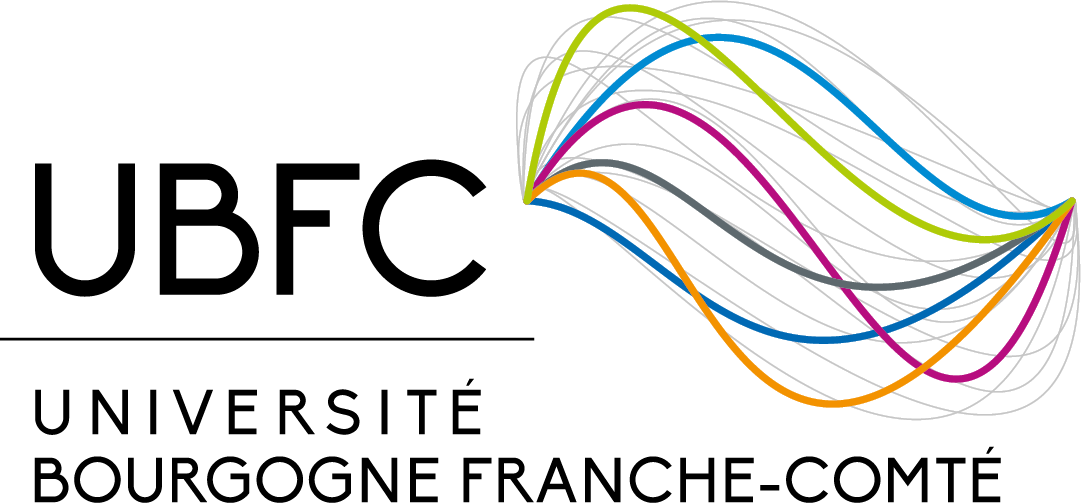The Master E-PhoT program provides a comprehensive program of courses covering theoretical, experimental and engineering aspects of photonics, micro/nano technologies, time-frequency metrology, information theory and complex systems. It is delivered by the Université Bourgogne Franche-Comté (UBFC) in the city of Besançon. It is designed to cover a selection of topics at the interface of physics and engineering sciences, closely integrated with domains of research excellence developed in the Region of Bourgogne Franche-Comté (BFC). The master’s program also provides complementary courses in disciplinary and interdisciplinary knowledge, as well as broad digital, societal, cultural, environmental, and entrepreneurial skills. It is open to students with undergraduate physics degrees, and it aims to provide complementary courses to prepare students for careers in either industry or for future PhD level studies. The E-PhoT masters is strongly supported by the FEMTO-ST Institute and the ICB Laboratory, research institutions with major international reputations in Physical Sciences and Engineering. The E-PhoT Master’s program has received a national label as a Master’s of Excellence for Engineering and Research, entitled CMI (“Cursus master en Ingénierie”) which is delivered by the CMI-FIGURE network which consists of 28 universities in France.
Photonics and nanotechnologies are one of the 6 Key Enabling Technologies identified by the European Commission as sources of innovation and competitiveness for the future. They are technological sectors that feed competitive and fast-growing markets (environment, health, automotive, safety, etc.) and there is a strong need for qualified graduates to support developing European Industry. When compared to other French Masters programs in similar fields, the particular novelty of the Masters E-PhoT is that it focuses on teaching multi-disciplinary skills on both the practical and fundamental level in a very wide range of topics: photonics, micro and nano-optics, quantum optics, micro-nanotechnologies, instrumentation, time-frequency metrology, micro-oscillators, micro- and nano-acoustics, bio-photonics, and complex systems.
The FEMTO-ST and ICB Institutes are the underlying UBFC laboratories that support the master E-PhoT program. The FEMTO-ST Institute in Besançon (www.femto-st.fr/en/), with more than 750 staff, is one of the largest laboratories in France in Engineering Sciences, having high international visibility in photonics, nanotechnology and time frequency technology. The ICB Institute in Dijon (icb.ubourgogne.fr/en/), with a staff of 300 people, is also an underlying UBFC laboratory of the E-PhoT master’s. The E-PhoT master’s program is based on the internationally highly recognized research activities of all these laboratories in photonics, micro & nanotechnologies, time-frequency and complex systems, with teaching and supervision being performed by renowned and highly qualified researchers (professors, assistant professors, or full-time CNRS researchers).
The courses, taught in English (see Teaching section), are divided between lectures, exercises/tutorials, practical labs and project activities. Students will be immersed in the labs from their 1st year of study, closely connected with the research groups via lab projects that will run throughout semester 1 to 3. Individual supervision will be provided to all students, combining a personal project advisor and a mentor.
A one-semester research internship in semester 4 can be carried out at FEMTO-ST, ICB, or a local or national industry partner. Students also have the possibility to obtain significant international experience by carrying out Master’s Internships (5-6 months) abroad at internationally-renowned universities having strong research collaborations with FEMTO-ST and ICB. The proposed E-PhoT Master’s program is also based on strong interactions with high-tech industrial partners both at the local and international levels.
Photonics and micro/nano technologies are very dynamic industrial sectors in Europe and hold the potential for huge market growth. It has a substantial leverage effect on the European economy and workforce: 20-30% of the economy and 10% of the workforce depend on photonics, directly impacting around 30 million jobs.
The master program offers intensive educational activities based on high level research activities in these domains. It focuses on fundamental & applied research mainly targeting careers in industry (R&D engineer) or for future PhD level studies either in academic institutions or industry.
Many scholarships will be awarded each year to high quality foreign students.
Cette formation accorde une place importante aux activités de mise en situation sous la forme de mini-projets, de projet intégrateur en première année de master et d’un stage en deuxième année.
Les étudiants peuvent envisager une poursuite d’études en doctorat.

